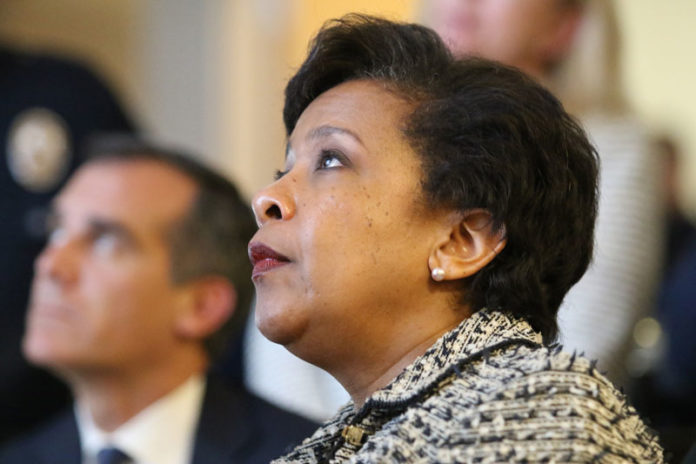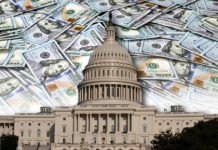So much for the public’s (free) right to know about government decisions and actions—the Department of Justice (DOJ) has slapped Judicial Watch with a startling $50,000 bill to search for public records the agency claims don’t exist. That’s nearly the median annual income in the U.S., which is $53,000 according to census figures. Keep in mind that Judicial Watch is a nonprofit educational foundation dedicated to government transparency and accountability.
Last fall Judicial Watch requested records from the DOJ, under the Freedom of Information Act (FOIA), related to the Obama administration’s involvement in a United Nation’s international law enforcement coalition called Strong Cities Network (SCN). The purported mission of this new global coalition is to build social cohesion and community resilience to counter violent extremism. The DOJ masterminded the agreement and Americans found out about the U.S.’s participation when Attorney General Loretta Lynch announced it During a U.N. speech on September 29, 2015.
Lynch referred to SCN as a “truly groundbreaking endeavor” and assured the famously corrupt world body that the Obama administration is deeply committed to the new initiative. “The government of the United States is fully invested in this collaborative approach and we have seen the value of empowering local communities by promoting initiatives they design and lead themselves,” Lynch said.
Following the Attorney General’s fiery U.N. delivery, a New York newspaper reported that the city was joining a new global, terror-busting network to combat homegrown extremism. Civil rights groups quickly denounced the U.S. participation, expressing concerns about law enforcement abuses against Muslims.
In a letter to New York Mayor Bill de Blasio 22 civil rights groups warned that other programs created to counter violent extremism stigmatized “Muslim communities as suspicious and in need of special monitoring.” The anti-terror initiatives have also made “the relationship between Muslims and schools and social service providers into security-based engagements,” the letter states. SCN assures however, that “violent extremism and prevention efforts should not be associated with any particular religion, nationality or ethnic group.” In a statement the DOJ also guaranteed that the SCN will safeguard the rights of local citizens and communities.
The State Department also put its weight behind SCN and earlier this year Secretary of State John Kerry hosted an event to promote it. Kerry referred to the new and untested U.N. initiative as “groundbreaking” and assured “we are already seeing results” though no evidence has been offered to back it.
Kerry proclaimed that SCN is absolutely essential, even without the challenge of violent extremism because “we ought to be doing these things to connect people to their community, to get people connected one to the other.” The Secretary of State added that a global law enforcement coalition like SCN would still be important “in terms of just keeping people out of trouble, out of jail, helping people find the right path for education and for a future.” Kerry ended by telling attendees that he couldn’t think of a more worthwhile mission.
In its mission to educate the public about the operations and activities of government, Judicial Watch filed a FOIA request with the DOJ on October 15, 2015 for documents related to SCN. Specifically, Judicial Watch asked for legal opinions and analysis prepared by the DOJ relating to the U.S. involvement in the program, documents that form the foundation for the decision for the country to participate in SCN, all international agreements and related records involving the commitment of U.S. resources or personnel to SCN and records of communication between officials in the Office of the Attorney General relating to the initiative.
The request reminds the agency that, under the OPEN Government Act, Judicial Watch is entitled to a complete waiver of search and duplication fees if records aren’t produced within 20 business days.
On July 29, 2016, long after the deadline to produce the records, the DOJ sent Judicial Watch a $50,000 invoice for search fees, though not a single file was produced. The invoice, which lists Rashad Javaid as the DOJ official that “fulfilled” the request, doesn’t offer a breakdown and erroneously categorizes Judicial Watch as a “commercial” entity when in fact all government agencies know well that Judicial Watch is a nonprofit under Internal Revenue Service (IRS) code. After all, Judicial Watch has been around for 22 years and all FOIA requests state clearly that it’s a 501(c)(3) not-for-profit that by definition has no commercial purpose. Last week Judicial Watch appealed the preposterous DOJ invoice.






























